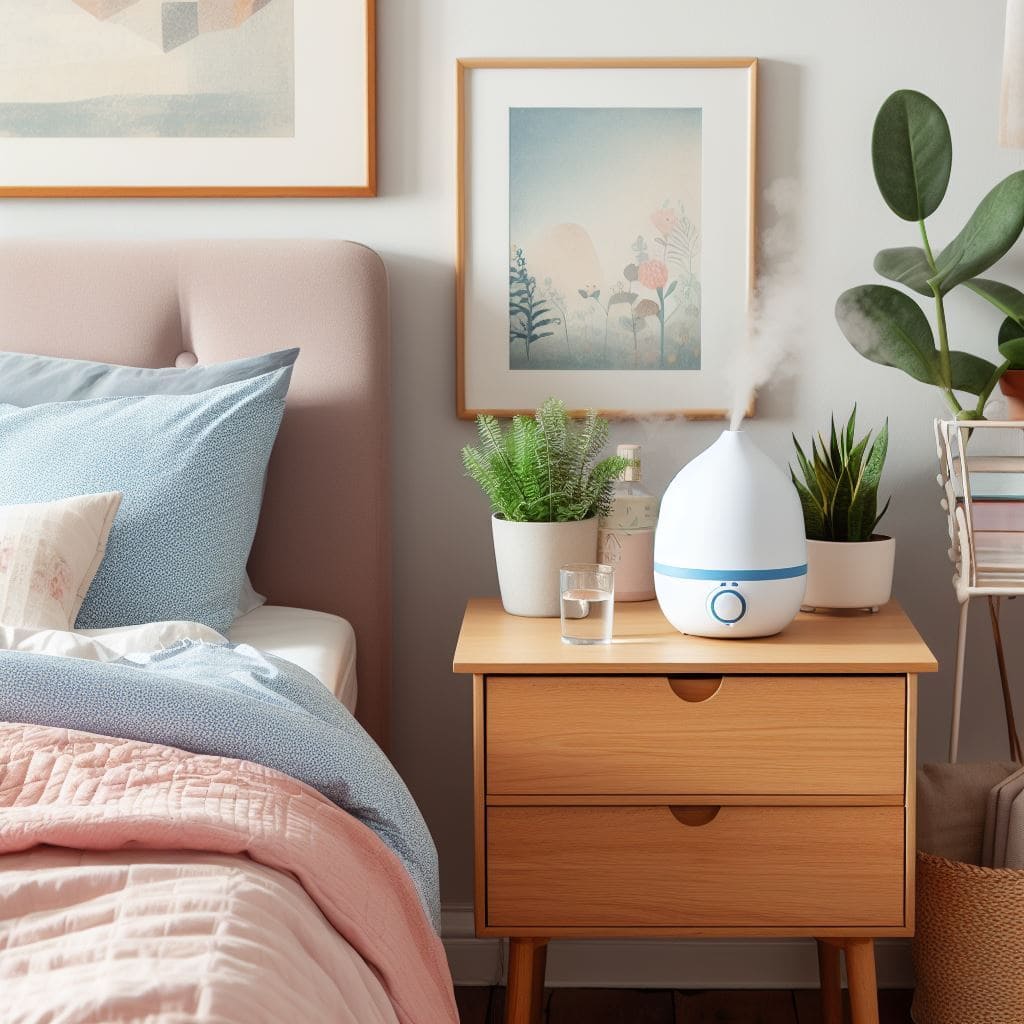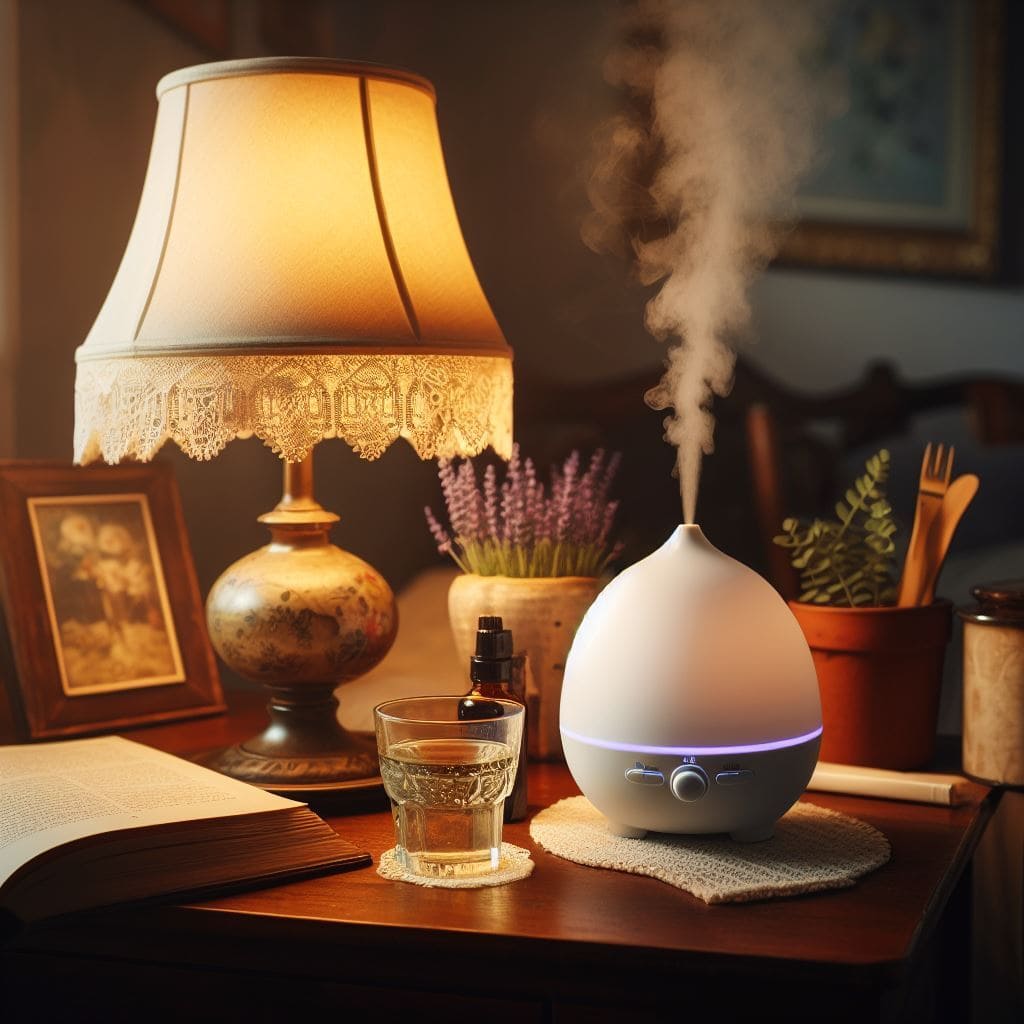In our quest for a healthier and more comfortable living environment, we often encounter terms like humidifier and diffuser. While these devices may seem similar, they serve different purposes and offer distinct benefits.
In this article, we will explore the differences between humidifiers and diffusers, helping you decide which one is right for you.
Content Summary
Humidifier
A humidifier is a device that adds moisture to the air, increasing the humidity levels in a room or an entire house. It is commonly used to combat dry air, especially in winter or arid climates. By releasing water vapor into the air, humidifiers can alleviate symptoms of dry skin, chapped lips, and irritated nasal passages.
They are also beneficial for people with respiratory conditions, as moist air can help ease breathing difficulties.
Types of Humidifiers
There are several types of humidifiers available in the market:
-
- Central Humidifiers: These are integrated into a house’s heating and cooling system, providing whole-house humidity control.
-
- Ultrasonic Humidifiers use ultrasonic vibrations to create a fine water vapor mist.
-
- Evaporative Humidifiers: These blow air through a wet wick or filter, causing water to evaporate and increase humidity.
-
- Steam Vaporizers: These heat water to produce steam, which is then released into the air.
Diffuser
A diffuser, on the other hand, is a device that disperses essential oils into the air, filling the room with their aromatic compounds. It is commonly used for aromatherapy, promoting relaxation, reducing stress, and improving mood.
Diffusers can also help mask unpleasant odors and create a soothing ambiance in any space.
Types of Diffusers
There are several types of diffusers available:
-
- Nebulizing Diffusers: These diffusers use pressurized air to break essential oils into fine particles, which are then released into the air.
-
- Ultrasonic Diffusers: These ultrasonic vibrations create a fine mist of essential oil and water vapor.
-
- Evaporative Diffusers: These evaporate essential oils directly from a pad or filter.
-
- Heat Diffusers: These use heat to volatilize essential oils and disperse them into the air.
Key Differences
While both humidifiers and diffusers can improve the atmosphere in your home, there are some key differences to consider:
Purpose
Humidifiers are primarily used to increase humidity levels and combat dry air, whereas diffusers are used for aromatherapy and dispersing essential oils.
Benefits
Humidifiers help alleviate dry skin, chapped lips, and respiratory issues, while diffusers promote relaxation, reduce stress, and improve mood through the power of essential oils.
Functionality
Humidifiers add moisture directly to the air, while diffusers break down essential oils and disperse them as a mist or vapor.
Usage
Humidifiers are typically used during dry seasons or in arid climates, while diffusers can be used year-round for aromatherapy or to create a pleasant scent in your living space.
Types Available
As mentioned earlier, there are various types of humidifiers and diffusers to choose from, each offering different features and benefits.
How does a humidifier differ from a diffuser regarding their primary functions in maintaining indoor air quality?
A humidifier and a diffuser serve different primary functions in maintaining indoor air quality.
A humidifier is designed to increase the moisture content in the air. It adds moisture to the room by releasing water vapor or steam, thus increasing humidity . This can be particularly beneficial in dry environments or during winter when the air tends to be drier. Adequate humidity helps prevent dry skin and respiratory issues and reduces static electricity. However, excessive humidity levels can promote the growth of mold and bacteria, so it is essential to maintain a balanced humidity level.
On the other hand, a diffuser is primarily used for aromatherapy purposes. It disperses essential oils into the air, creating a pleasing fragrance and potentially providing therapeutic benefits. Diffusers can use various methods, such as ultrasonic vibrations, heat, or evaporation, to disperse the oils. While they can enhance the aroma of a space and create a relaxing atmosphere, their primary purpose is not to humidify the air.
In summary, a humidifier adds moisture to the air to increase humidity levels, while a diffuser disperses essential oils for aromatherapy purposes.
What are the key factors when deciding whether to invest in a humidifier or a diffuser?
When deciding whether to invest in a humidifier or a diffuser for improving the overall atmosphere and wellness of a living space, several key factors should be considered:
1. Purpose: Determine the primary reason for the purchase. If the goal is to increase moisture levels in the air, a humidifier would be the better choice. However, a diffuser would be more suitable if the aim is to disperse essential oils for aromatherapy or to create a pleasant fragrance.
2. Health Benefits: Consider the specific health benefits associated with each device. Humidifiers can help alleviate respiratory issues, dry skin, and allergies by adding moisture to the air. Conversely, Diffusers can enhance mood, reduce stress, and promote better sleep through aromatherapy.
3. Coverage Area: Evaluate the size of the living space that needs to be humidified or scented. Humidifiers generally cover larger areas and are more effective for whole-house benefits, while diffusers are suitable for smaller rooms.
4. Maintenance: Consider each device’s ease of maintenance and upkeep. Humidifiers typically require regular cleaning and filter replacement, while diffusers are generally easier to clean and maintain.
5. Noise Level: Assess the noise level of the device, mainly if it will be used in a bedroom or workspace. Humidifiers can sometimes produce noise due to the operation of internal fans, while diffusers are usually silent.
6. Safety: Ensure that the chosen device is safe to use and does not pose any risks. Look for features such as automatic shut-off for humidifiers in case of water depletion and safe heat-free operation for diffusers.
7. Cost: Compare the initial investment cost and ongoing costs , such as filter replacements or essential oil refills. Consider the long-term value and benefits provided by each device.
8. Personal Preferences: Ultimately, consider personal preferences and lifestyle factors. Some individuals may prioritize the therapeutic benefits of aromatherapy, while others may prioritize the physical health benefits of humidification.
By carefully considering these key factors, one can make an informed decision on whether to invest in a humidifier or a diffuser to improve their living space’s overall atmosphere and wellness.
Conclusions
Understanding the differences between humidifiers and diffusers is crucial when deciding which device best suits your needs. Humidifiers are ideal for adding moisture to the air and combating dryness, while diffusers are perfect for enjoying the aromatic benefits of essential oils.
Consider your specific requirements and preferences to make an informed choice. Whether you prioritize improving air quality or creating a relaxing atmosphere, humidifiers and diffusers can enhance your living environment and contribute to your overall well-being.


